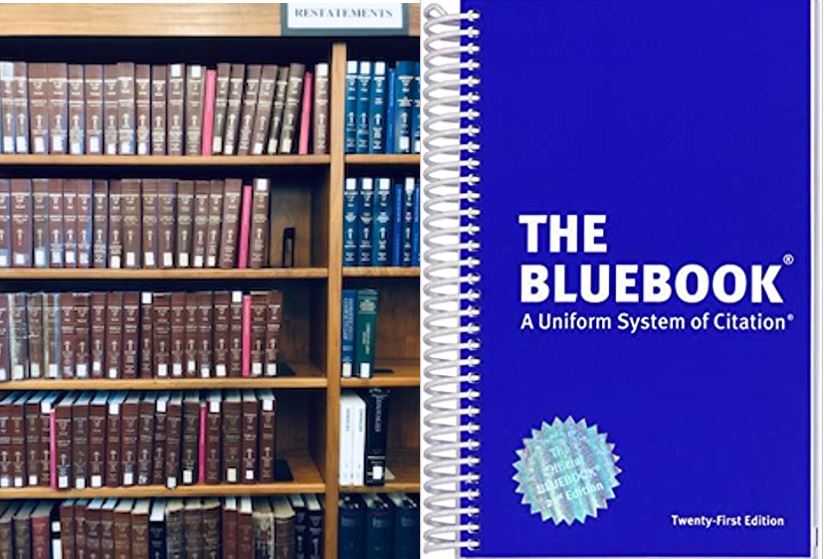
Here’s an update about a couple of core legal resources that all attorneys used in law school. They are the Restatements of the Law and the Uniform System of Citation, (the Bluebook). These long-established titles have undergone some changes in the past few years. Regarding the Restatements, the new publishing plan has caused the law library to rethink where the materials should be placed in the collection.
Published by the American Law Institute (ALI), the Restatements of the Law include many titles and their respective supplements, appendices, and numbered new versions. Various titles cover major areas of law such as contracts, torts, property, judgments, conflict of laws, and others. ALI began the system in 1923 to issue “restatements” that would promulgate one highly authoritative source stating the common law, with rule-like content and explanatory material. In recent years, they devised a new numbering system in 2014, and they converted their more specialized “Principles of the Law” series to Restatements in 2015. The narrower topics appear in more recent restatement titles which reflect ALI’s decision to publish new titles without any numbers.
It’s possible that only a law librarian would savor delving into the details about the changes. However, our users should know that we’ve departed from our customary scheme of placing all the Restatements in one section of the library. Our new scheme involves keeping the older Restatements, with their broad subject coverage, in the north reading room where they’ve always been. The newer, more specialized, topical restatements are dispersed into the collection where similar subject matter is located. That way, users who are browsing an area (i.e. employment law) will find that a restatement was published for the topic. The law library continues to acquire the Restatements in print, and they are also available on our Westlaw service.
A new edition of the Uniform System of Citation (aka the Bluebook) is published about every five years. The library has the current and several previous print editions. The Bluebook is a combined effort of law review editors at four law schools–Yale, Columbia, University of Pennsylvania, and Harvard. The 21st edition came out in 2020 and is noticeably smaller than its recent predecessors. The decrease in size is due the elimination of Table T2, which accompanies Rule 20 on “Foreign Materials,” from the print version. Table T2 is now online only.
The Bluebook not only describes how to cite to various electronic resources, but it is itself available in electronic format and includes access on mobile devices. There is a cost for the online version. The Bluebook editors would like feedback from attorneys and judges and comments can be sent to editor@legalbluebook.com.
For those who would like a very condensed overview of the new Bluebook, the law library also has the User’s Guide to the Bluebook: Revised for the twenty-first edition, by Alan L. Dworsky.